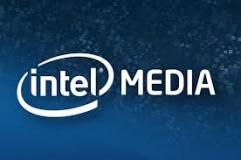Intel Media’s OTT TV Play in Jeopardy: Source
The smarter way to stay on top of the multichannel video marketplace. Sign up below.
You are now subscribed
Your newsletter sign-up was successful

Intel Media’s aspiring shot at creating a “virtual” MSO is in jeopardy of missing its 2013 launch window and is facing the possibility of having the project shut down if it fails to assemble enough content deals on its own or secure a partner to help it generate a compelling enough over-the-top video service, an industry source who is familiar with the situation said.
AllThingsD reported Thursday that Intel Media has sought to bring on Amazon and Samsung as strategic backers as part of a plan to help keep the project alive. An industry source told Multichannel News Thursday that Intel Media has also tried to engage discussions with Liberty Media or its MSO unit, Liberty Global, about a partnership that would involve financial backing and essentially provide the project with some needed validation. But those inquiries have so far generated “zero interest” from Liberty, which now owns 27.3% of U.S. cable MSO Charter Communications. Intel Media is “getting desperate,” the industry source said.
A second industry source on Friday confirmed that Intel Media has tried to reach out to Liberty to no avail.
An Intel Media spokesman declined to comment. Liberty Global has been asked for comment.
Based on recent comments, Intel CEO Brian Krzanich has appeared cautious about the project’s prospects. “We believe we have a great user interface and the compression-decompression technology is fantastic," Krzanich told Reuters in June. "But in the end, if we want to provide that service it comes down to content. We are not big content players."
One source said the Intel Media project has alienated execs in charge of Intel Corp.’s set-top and DOCSIS modem chip business because the prospect of Intel creating an over-the-top pay-TV service is giving some cable operators pause about purchasing products from a potential competitor.
The same industry source said Intel Media’s internal traction on the project is also slipping because it’s not considered core to Intel’s business, and that Intel Media’s had a hard time securing distribution rights for programming, and finding that the “scale opportunity for a virtual MSO service is smaller than they had envisioned.”
The smarter way to stay on top of the multichannel video marketplace. Sign up below.
Intel Media, the person added, might just be too early with its idea, as programmers are just now starting to get comfortable with new distribution models and many are not ready to pull the trigger on the sort of deal that would allow what Intel Media has in mind.
Should Intel Media decide to scale back its plans for a virtual MSO or shut it down, it might try to sell or license the intellectual property it has created for the service or try to weave it into products that are targeted to cable operators and other service providers, sources said.
Earlier this month, Intel Media confirmed that the unit was testing its OTT subscription video service, reportedly to be called OnCue, in Oregon, Northern California and Arizona. It hasn’t announced any programming deals yet, but Intel Media execs have openly discussed plans to attack the saturated pay TV market with flexible bundling options.
Courtnee Westendorf, general manager and head of marketing for Intel Media, told The Oregonian recently that “[w]e will not bring a product to market without a compelling content proposition.”
In a research note issued in June, Craig Moffett, senior research analyst with MoffettNathanson Research, said Intel Media's success as a virtual MSO would hinge on its ability to undercut traditional pay-TV pricing by either acquiring content more cheaply, offering smaller packages, or marketing a cheaper service. Of those three paths, "[n]one seem terribly likely," he wrote in his grim assessment.
Google and Sony are among others that are reportedly developing virtual MSO services.
